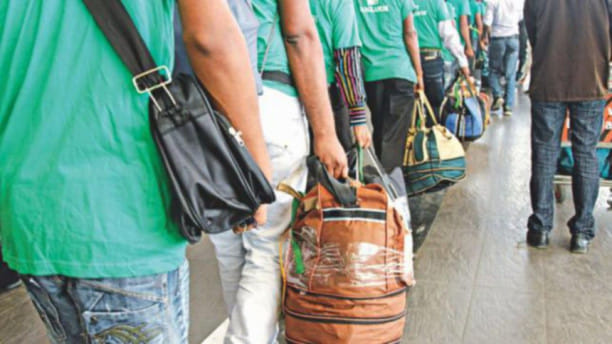State-run agency's labour migration mainly limited to 2 countries

Labour sending by Bangladesh Overseas Employment and Services Ltd (Boesl) remained limited mainly to two countries although it has explored more than 20 countries in past 14 years.
Boesl's annual report for 2023-24 shows it sent workers to 13 countries in last fiscal year compared to six countries in 2010-11.
During this period, the only state-run recruiting agency sent a total of 1.43 lakh workers to 21 countries. Of them, 1.37 lakh workers have gone to Jordan and South Korea with 1.06 lakh to the Middle East country.
Also, Jordan and South Korea are the only countries where Boesl could send workers consistently over the years.
For example, Boesl sent workers to Bahrain in 2010-11 and continued till 2015-16. After that, no worker has gone there through Boesl.
Likewise, it sent workers to Oman between 2011-12 and 2016-17 but failed sent workers to the Middle East country in the later years.
Asked about the limited labour markets, an official of Boesl said they focus on three key issues to send workers abroad which are safe, ethical and low-cost or zero cost migration.
When these issues are highlighted then the question of quality migration comes to the fore instead of quantity, the official said.
The official emphasised that they want to avoid the kind of labour sending which may put a worker in face of exploitative situation abroad.
The official said they have been trying scopes in some new markets as well, adding, through Boesl some European countries want to hire institutionally-recognised skilled workers from Bangladesh.
The annual report says Boesl started sending RMG workers to Jordan in 2010.
At present, 42 garment companies in Jordan are taking garment workers through Boesl at a monthly salary of around Tk 30,000-35,000.
Most of the companies in Jordan follow the "Employer Pay Model" which means workers are going to Jordan with zero migration cost.
On the other hand, since 2008, Bangladeshi workers have been successfully recruited in South Korea under the Employment Permit System (EPS) through Boesl.
According to the memorandum of understanding between Bangladesh and Korea, Boesl on behalf of Bangladesh and Human Resources Development Service of Korea (HRD Korea) on behalf of South Korea conduct the migration process.
From July 2008 to June 2024, a total of 34,069 workers migrated to South Korea under EPS at low cost and high salary.
In recent years, Boesl sent limited number of workers to new countries including European nations Croatia, Romania, and Bulgaria and Oceania country Fiji alongside sending handful number of workers to established labour markets like Kuwait and Malaysia.
The report says Boesl is the only government-owned recruiting agency among around 2,300 agencies in Bangladesh.
The selection process is closely supervised by Boesl authority to ensure equal participation of every suitable candidate.




 For all latest news, follow The Daily Star's Google News channel.
For all latest news, follow The Daily Star's Google News channel.
Comments